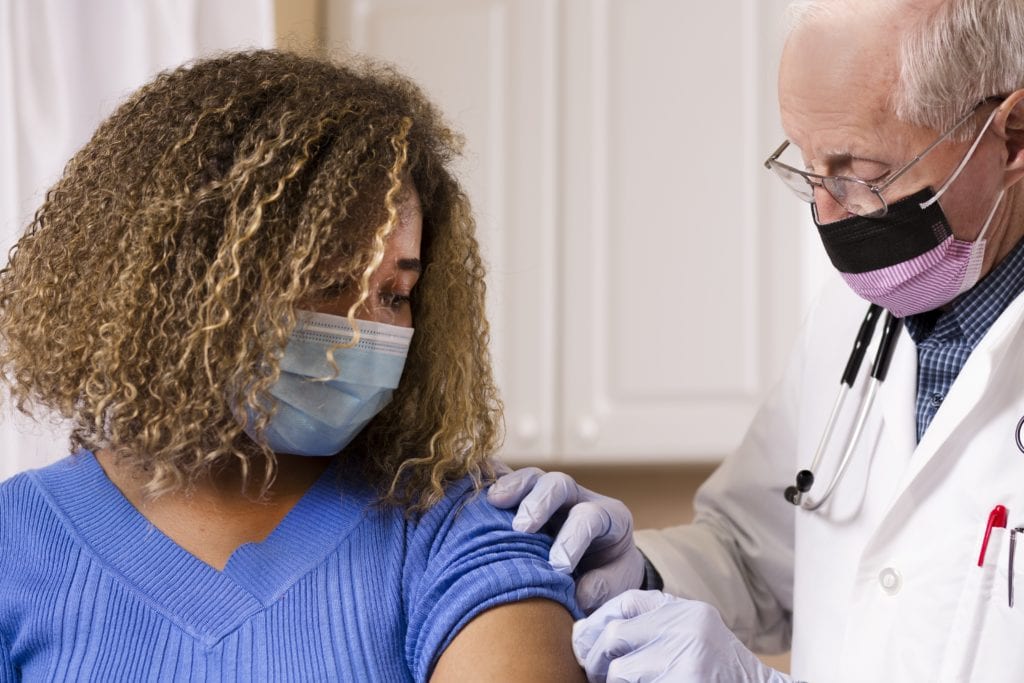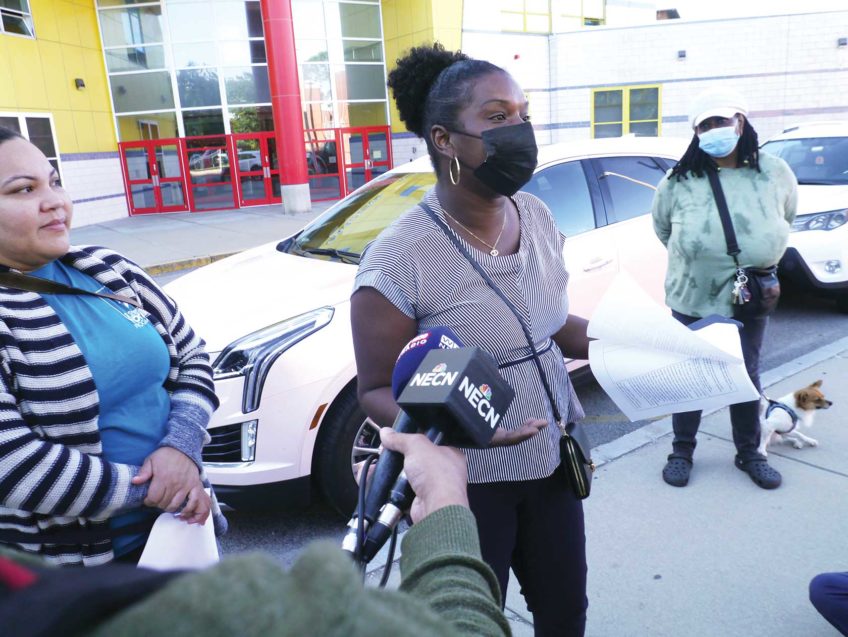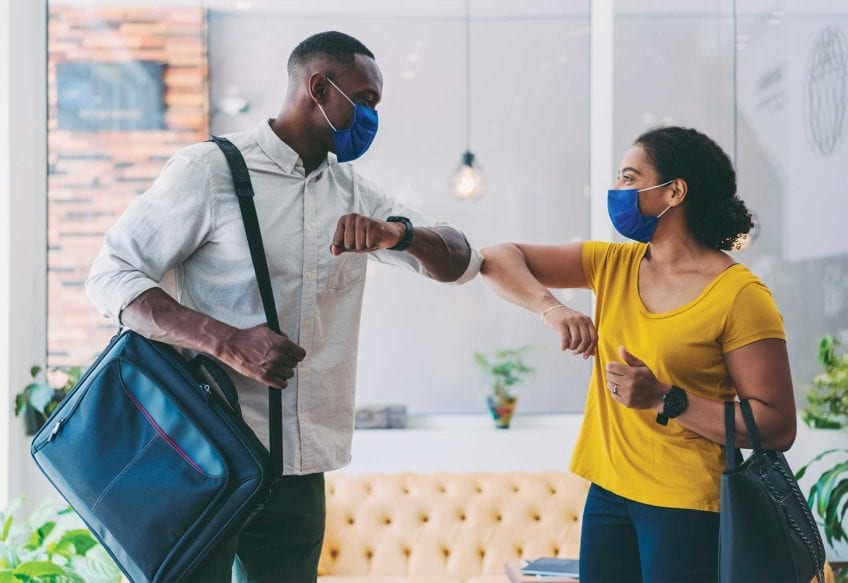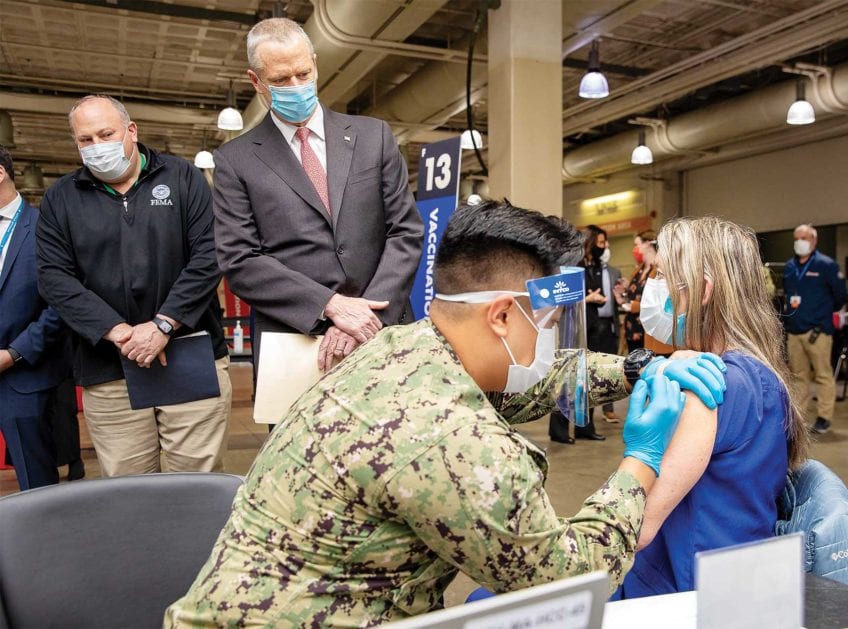Should I Get the Vaccine?
A Q&A with Jessica Rubinstein, M.D., interim chief medical officer at Tufts Health Plan, that separates fact from fiction about the COVID-19 vaccine


Jessica Rubinstein, M.D., interim chief medical officer at Tufts Health Plan, separates fact from fiction about the COVID-19 vaccine to help you make the best choice possible for yourself and your family.
Q: The vaccines were developed so fast. Are they really safe?
A: Yes. You can trust that the vaccines are safe. The Food and Drug Administration (FDA) took no shortcuts when approving the vaccines for emergency use authorization. Its scientists followed a thorough review process that makes sure any approved vaccines are safe and effective.
What was different recently was that the U.S. government provided funds that drug companies could use to make large quantities of the vaccines while they were being tested instead of waiting until the testing was done. The companies would have had to throw the vaccines out if they were not safe or effective. Since they were safe and effective, drug companies were able to ship the vaccines across the country as soon as the FDA approved them. This change is saving lives and helping us fight the pandemic.
Q: Are they safe for me as a person of color?
A: Yes. The companies that produced the approved vaccines recruited people from minority groups for their clinical trials to see how the vaccines protect people of different races and ethnicities. While the percentage of diverse participants was lower than their share of the population, these trials were more diverse than many past trials for other drugs. The spotlight is on this problem, and efforts are underway on many fronts to improve racial and ethnic diversity in clinical trials.
The good news is that the COVID-19 trials included minorities, and the trials showed that the vaccines are safe and effective across all racial and ethnic groups.
Q: Could the vaccines give me COVID-19?
A: No. The vaccines have proteins that are like COVID-19 proteins, and your body makes antibodies to those proteins. The coronavirus isn’t in the vaccine, but your immune system makes antibodies to fight it anyway. If you do catch the virus, your immune system knows what to do and has a pre-rehearsed plan to fight the infection.
Q: Are some vaccines better than others?
A: Each of the approved vaccines are very effective at the most important thing: Preventing serious illness and death from COVID-19. The Pfizer and Moderna vaccines had very high success rates, but they were tested before more transmissible variants of COVID-19 had emerged. Johnson & Johnson’s success rate was lower, but it was tested and performed well in areas where those variants were widespread. The bottom line is that you should get the first vaccine you can to protect yourself from COVID-19 as soon as possible.
Q: Will I get sick from the vaccine?
A: Some people have no side effects. Others have mild symptoms as their body’s immune response kicks in. For example, people may feel tired and have pain, redness, itching and/or swelling in their arm where they got the shot.The vaccine can also cause a headache, muscle pain, chills, fever and nausea. For vaccines that require two shots, side effects may be more intense after your second shot side effects usually last 1-2 days. In rare cases, people have an allergic reaction to the vaccine. To keep people safe, everyone is monitored for 15 minutes after getting the vaccine. Anyone with a history of an allergic reaction is monitored for 30 minutes.
Q: Does getting a vaccine affect my immigration status?
No. The federal government will not consider whether people got COVID-19 treatment (including a vaccine) when making immigration-related decisions. This is true even if Medicaid or other federal funds are used to pay for the vaccine. Health officials do not ask about immigration status when you get the vaccine. They share no vaccine information with immigration officials. Federal and state health officials urge people to get a vaccine when they are eligible, regardless of their immigration status.
Q: I’ve heard or read a lot of negative information about the vaccine. What should I believe?
There is a lot of misinformation and disinformation out there. It’s a good idea to talk with your doctor or a health professional you trust if you have concerns. For online information, visit reputable websites, such as the Centers for Disease Control and Prevention at cdc.gov and and Mass.gov
Q: Could the vaccines harm my kids?
No. Young children will not be able to get a vaccine until the vaccines go through the same thorough testing in children that they did in adults. Currently, the Pfizer vaccine is approved for use in those 16 and older. The Moderna and Johnson & Johnson vaccines are approved for use in people 18 and older. Teens 16 and older with certain health conditions that increase their risk for severe COVID-19 illness are eligible for vaccines now. Those conditions include asthma, Down’s syndrome and cancer.*
All teens 16 and older are eligible for the vaccine starting April 19 in Massachusetts. Trials of all three vaccines are underway in kids. Once the trials are complete, scientists will be able to tell us if the COVID-19 vaccines are safe and effective in younger children.
Dr. Jessica Rubinstein is a pediatrician dedicated to improving the health of underserved communities, and eliminating racial and ethnic health disparities. She earned a Doctor of Medicine degree from University of Massachusetts Medical School and a Master of Science degree in health care management from Harvard T.H. Chan School of Public Health.
Tufts Health Plan is one of the few health plans in Massachusetts to offer coverage across the life span regardless of age or circumstance. This coverage includes Medicaid/subsidized, commercial and Medicare health plans. To learn more, visit tuftshealthplan.com.
*Visit Mass.gov to see the full list.
This post is sponsored by Tufts Health Plan






